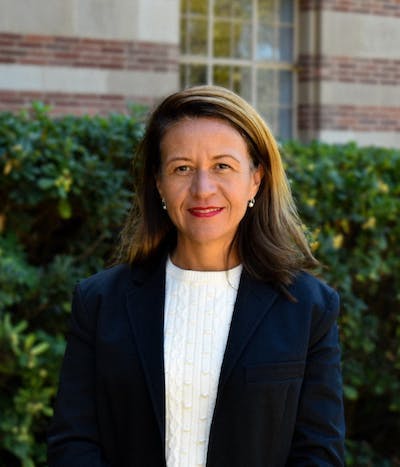Researchers say CA Master Plan is obsolete, structural changes to increase degree production and intense focus on racial equity are needed
Calling California Community College Baccalaureate (CCB) degree programs, “potentially the best vehicle to transform who accesses and succeeds in California’s higher education and labor market,” the UCLA Civil Rights Project/Proyecto Derechos Civiles today released new research detailing the progress and potential of the CCC baccalaureate degree programs and arguing for their strategic expansion across the state.

“In the 60 years since the establishment of the California Master Plan for Higher Education, the system has become increasingly stratified, with largely white, Asian, and more affluent students attending UC and CSU campuses, with two-year colleges mostly attended by lower income students of color, far too few of whom have the opportunity to go on to attain four-year degrees,” said Patricia Gándara, co-director of the UCLA Civil Rights Project/Proyecto Derechos Civiles. “The expansion of the community college baccalaureate programs offers a powerful tool for increasing the number of underrepresented students who attain bachelor degrees, and importantly, furthering educational racial equity and economic and social advancement.”
The new research report, “The Potential of California’s Community College Baccalaureate for Closing Racial Equity Gaps,” examines the status of existing CCB pilot programs to analyze enrollment patterns in CCB programs and describe program outcomes, including student persistence, graduation, and employment success after graduation. Those outcomes are largely positive. The report’s authors contend now is a pivotal moment to improve the effectiveness, efficiency, and quality of CCBs in California and, in so doing, increase the number of students that complete a baccalaureate degree in the state. They urge policy makers, practitioners, and other education leaders to expand CCB programs, and offer specific recommendations for doing so.

“Our community colleges are filled with bright, talented students, but many face economic and structural challenges in the education system that hinder their ability to transfer to four-year colleges and complete their degree,” said Cecilia Rios-Aguilar, chair of the Department of Education at the UCLA School of Education and Information Studies and report co-author. “The expansion of the Community College Baccalaureate degree programs offers the potential to do better by these students. We can further educational and racial equity by increasing access to opportunities for degree completion at local community colleges and help to meet our states educational and economic needs by increasing degree production.”
According to the report, California enrolls approximately 2 million students in community colleges each year, with most intending to eventually earn a bachelor’s degree, however:
· Latina/o/x students remain significantly overrepresented in the California Community Colleges (CCC) (and in the California State University (CSU) system), representing 46% of students attending CCCs.
· A higher proportion of students from economically minoritized backgrounds are also enrolled in the CCC with 42% of CCC students eligible for Pell Grants.
There are also substantial differences in who has access to and completes baccalaureate degrees in California:
· Fewer than a third of transfer-intending students transfer to a four-year college after six years and there are large racial equity gaps among those students who do.
· While Latina/o/x community college students represent more than half (51%) of all students who say they intend to transfer, they represent just 35% of those who successfully transfer within four years.
· African American or Black students represent a smaller share of the student body, representing 7% of all students who declared a degree/transfer goal, yet just 5% of those who transfer.
The potential for better outcomes can be seen in the report’s review of educational outcomes of students participating California Community College pilot programs:
· Student institutional data from all 15 CCB programs reveal that, on average, the year-two and year-three graduation rates for CCB programs were 67% and 78% in California across three student cohorts (calculated from when students officially begin taking upper-division courses).
· CCB graduates have also been successful in gaining employment for each of the past three years, with students reporting wage gains as a result of obtaining their baccalaureate degrees.
· A review of community college baccalaureate programs in other states (Washington and Florida) finds promising practices and outcomes that also underscore the potential for expansion in California.
The researchers note, however, that data systems in California can and need to be better integrated and comprehensive to document students’ academic and labor market participation and outcomes in community college baccalaureate programs. Effective program evaluation tools and resources will be necessary for program growth, and the state must create a cohesive data and research infrastructure that is inclusive of CCB programs.
The report’s authors contend that the current version of the CA Master Plan for Higher Education is obsolete andposes structural impediments for bachelor’s degree-aspirants in California. The system intentionally stratifies postsecondary education access by primarily designating CSU and UC with baccalaureate conferment, and the CCB approval process currently involves getting CSU/UC support. There is also an unnecessary focus on program duplication with CSU/UC programs since CCB programs attract a different student population (e.g., older students who may be more place-bound).
“In the face of a growing need for baccalaureate degrees for job requirements and unmet social and economic mobility, California’s Master Plan for Higher Education is outdated and limited in its ability to equitably serve Californians,” said Davis Vo, a doctoral researcher at the UCLA School of Education and Information Studies and report co-author. “There is a need and promising potential for structural reform. California can do better.”
“California’s initial community college baccalaureate programs show promise and could be the right tool for establishing an accessible, affordable, place-bound public pathway towards baccalaureate attainment and social and economic mobility,” adds Marcela G. Cuéllar, an associate professor in the School of Education at the University of California Davis, and a co-author of the report. “Education leaders and policy makers need to act to meet the needs of our students and state.”
The report’s authors urge the expansion of Community College Baccalaureate degrees. In doing so they recommend policymakers and education leaders center racial equity; evaluate and improve implementation, quality, and accountability; invest in community colleges and CCB programs, especially for those directly involved and impacting students and faculty; be strategic in expanding CCB programs, offering degrees in fields where there is a clear shortage of bachelor’s degree-educated workers and addressing local needs; market the educational and economic benefits of Community College Baccalaureate programs and degrees; and, create a community of practice learn together to ensure how to develop best practices, policies, structures, and systems that will be beneficial for colleges, businesses, and students.
“The Potential of California’s Community College Baccalaureate for Closing Racial Equity Gaps,” was researched and written by a team of researchers at the UCLA School of Education and Information Studies, UC Davis, the University of Wisconsin – Madison, and the United States Government Accountability Office. The report was published by the UCLA Civil Rights Project/Proyecto Derechos Civiles as part of a new research series, “A Civil Rights Agenda for California’s Next Quarter Century,” in commemoration of its 25th Anniversary.
The full report, including specific recommendations, is available online HERE.
—————————————————————————————————————————-
About the UCLA Civil Rights Project/Proyecto Derechos Civiles:
The Civil Rights Project/Proyecto Derechos Civiles is co-directed by UCLA Research Professors Gary Orfield and Patricia Gándara. Founded in 1996 at Harvard University, CRP’s mission is to create a new generation of research in social science and law on the critical issues of civil rights and equal opportunity for racial and ethnic groups in the U.S. CRP is a trusted source of segregation statistics, has commissioned more than 400 studies, published more than 25 books and issued numerous reports monitoring the success of American schools in equalizing opportunity. The U.S. Supreme Court, in its 2003 Grutter v. Bollinger decision upholding affirmative action, and in Justice Breyer’s dissent (joined by three other Justices) to its 2007 Parents Involved decision, cited the Civil Rights Project’s research.